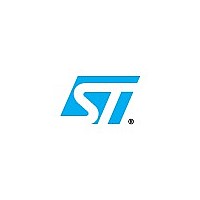STR911FAW46X6 STMicroelectronics, STR911FAW46X6 Datasheet - Page 68

STR911FAW46X6
Manufacturer Part Number
STR911FAW46X6
Description
MCU ARM9 1024KB FLASH 128LQFP
Manufacturer
STMicroelectronics
Series
STR9r
Datasheet
1.STEVAL-IFW001V1.pdf
(102 pages)
Specifications of STR911FAW46X6
Core Processor
ARM9
Core Size
32-Bit
Speed
96MHz
Connectivity
CAN, EBI/EMI, I²C, IrDA, Microwire, SPI, SSI, SSP, UART/USART, USB
Peripherals
Brown-out Detect/Reset, DMA, POR, PWM, WDT
Number Of I /o
80
Program Memory Size
1MB (1M x 8)
Program Memory Type
FLASH
Ram Size
96K x 8
Voltage - Supply (vcc/vdd)
1.65 V ~ 2 V
Data Converters
A/D 8x10b
Oscillator Type
Internal
Operating Temperature
-40°C ~ 85°C
Package / Case
128-LQFP
Processor Series
STR911x
Core
ARM966E-S
Data Bus Width
16 bit, 32 bit
Data Ram Size
96 KB
Interface Type
CAN, SPI, UART
Maximum Clock Frequency
96 MHz
Number Of Programmable I/os
80
Number Of Timers
4
Maximum Operating Temperature
+ 85 C
Mounting Style
SMD/SMT
3rd Party Development Tools
EWARM, EWARM-BL, MCBSTR9, MCBSTR9U, MCBSTR9UME, MDK-ARM, RL-ARM, ULINK2
Minimum Operating Temperature
- 40 C
On-chip Adc
10 bit, 8 Channel
For Use With
MCBSTR9UME - BOARD EVAL MCBSTR9 + ULINK-MEMCBSTR9U - BOARD EVAL MCBSTR9 + ULINK2MCBSTR9 - BOARD EVAL STM STR9 SERIES
Lead Free Status / RoHS Status
Lead free / RoHS Compliant
Eeprom Size
-
Lead Free Status / Rohs Status
Details
Available stocks
Company
Part Number
Manufacturer
Quantity
Price
Company:
Part Number:
STR911FAW46X6
Manufacturer:
ST
Quantity:
201
Company:
Part Number:
STR911FAW46X6
Manufacturer:
STMicroelectronics
Quantity:
10 000
Electrical characteristics
7.7.3
Note:
Caution:
68/102
Figure 16. Typical application with an external clock source
RTC clock generated from a crystal/ceramic resonator
The RTC (Real-Time Clock) can be supplied with a 32.768 kHz crystal/ceramic resonator
oscillator. All the information given in this paragraph is based on characterization results
obtained with typical external components specified in
application, the resonator and the load capacitors have to be placed as close as possible to
the oscillator pins in order to minimize output distortion and startup stabilization time. Refer
to the crystal resonator manufacturer for more details on the resonator characteristics
(frequency, package, accuracy).
For CL1 and CL2 it is recommended to use high-quality ceramic capacitors in the 5 pF to 16
pF range, selected to match the requirements of the crystal or resonator. CL1 and CL2, are
usually the same size. The crystal manufacturer typically specifies a load capacitance which
is the series combination of CL1 and CL2.
Load capacitance CL has the following formula:
where Cstray is the pin capacitance and board or trace PCB-related capacitance. Typically,
it is between 2 pF and 7 pF.
Never use a resonator with a load capacitance of 12.5 pF.
Example: if you choose a resonator with a load capacitance of CL = 6 pF, and Cstray = 2 pF,
then CL1 = CL2 = 8 pF.
Conditions: V
Table 20.
1. Refer to
2. Data based on bench measurements, not tested in production.
V
t
START(RTC)
STUP(RTC)
Symbol
R
g
M
F
Table 14
V
V
X1H
X1L
RTC oscillator electrical characteristics
DDQ
EXTERNAL
CLOCK SOURCE
External feedback resistor
Oscillator start voltage
Oscillator transconductance
Oscillator Start-up Time
for min. value of V
= 2.7 - 3.6 V, V
t
r(T1)
Parameter
CL = CL1 x CL2 / (CL1 + CL2) + Cstray
T
X1
hi-Z
Doc ID 13495 Rev 6
DD_LVD+
DD
t
f(X1)
= 1.65 - 2 V, T
(2)
X2_CPU
X1_CPU
90%
10%
(2)
Start-up
V
conditions
DD
Test
stable
t
w(X1H)
A
= -40 / 85 °C unless otherwise specified.
Table 20
I
V
L
DD_LVD+
t
w(X1L)
Min
1.8
f
OSC
STR91xF
&
(1)
Table
Value
Typ
22
21. In the
STR91xFAxxx
Max
1
µA/Volts
Unit
MΩ
V
S













